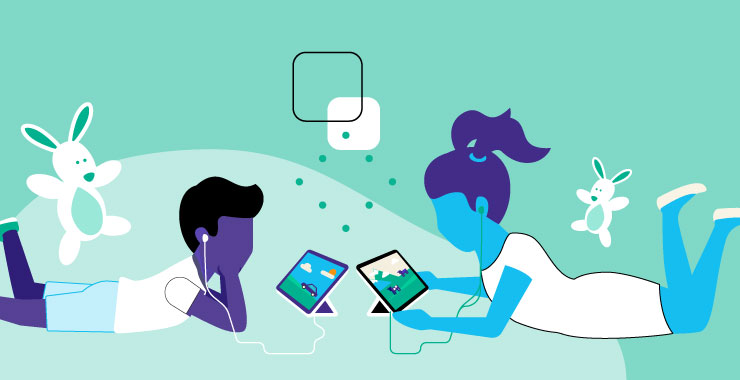18 Mar, 2025 | healthpulseonline | No Comments
How Can A Meditation App Improve Your Mental Well Being?

In recent years, technology has infiltrated almost every aspect of our daily lives, from the way we communicate to how we work and even how we take care of ourselves. One of the most significant changes in the wellness industry is the rise of meditation apps. These apps have become an accessible tool for those seeking to improve their mental health and well-being, offering convenient and affordable solutions for stress relief, mindfulness, and emotional balance. But how exactly can a meditation app improve your mental well-being? In this article, we will explore how these apps work, the benefits they offer, and answer some frequently asked questions about their impact.
Key Takeaways
- Meditation apps can reduce stress and anxiety, improve emotional health, and increase focus.
- Regular use of meditation apps can lead to better sleep and enhanced decision-making.
- Most apps offer accessibility, making it easy to incorporate meditation into your daily routine.
- Consistent meditation practice is essential for long-term mental well-being benefits.
- Meditation apps are suitable for beginners and can be used to complement professional mental health treatment.
The Power of Meditation for Mental Well-Being

Before diving into how meditation apps can improve mental well-being, it’s essential to understand the power of meditation itself. Meditation has been practiced for thousands of years, originating from ancient spiritual traditions such as Buddhism, Hinduism, and Taoism. Over time, science has revealed numerous benefits of meditation for the mind and body, making it a cornerstone of modern wellness practices.
Meditation, in its essence, is a practice that involves focused attention and awareness to cultivate a state of relaxation and mental clarity. There are various types of meditation, such as mindfulness meditation, guided meditation, and transcendental meditation, all aimed at reducing stress and improving emotional health.
Studies have shown that regular meditation can have a profound impact on mental well-being. It helps reduce stress by lowering cortisol levels, enhances emotional regulation, improves concentration, and fosters a sense of inner peace. Meditation can also improve sleep quality, reduce anxiety and depression symptoms, and increase feelings of self-compassion and gratitude.
How Meditation Apps Work
With the increasing popularity of meditation and mindfulness practices, developers have created meditation apps to make the practice more accessible to a wide audience. These apps aim to bring meditation to your fingertips by providing guided sessions, relaxation techniques, and mindfulness exercises that can be done anywhere at any time.
Most meditation apps function similarly by offering audio-based guided meditations, which can range from a few minutes to an hour. These guided sessions may feature soothing music, nature sounds, or a voice guiding you through various techniques to calm your mind, relax your body, and shift your focus to the present moment.
In addition to guided meditation, many apps also offer tracking features that monitor your progress and help you stay motivated. These apps often come with reminders or notifications to prompt you to meditate daily, promoting consistency and forming a healthy habit. Some meditation apps also offer personalized recommendations based on your goals or areas of focus, such as stress relief, sleep improvement, or anxiety reduction.
Now that we understand how meditation apps work, let’s explore the specific ways in which they can improve your mental well-being.
1. Reduces Stress and Anxiety
One of the primary reasons people turn to meditation apps is to manage stress and anxiety. Both stress and anxiety are common mental health issues that can lead to a variety of physical and emotional problems if left unchecked. Meditation helps by activating the parasympathetic nervous system, which is responsible for the body’s relaxation response.
Meditation techniques such as deep breathing, mindfulness, and body scan exercises are known to reduce stress and anxiety by calming the nervous system. Regular use of meditation apps can help users build resilience to stress and create a sense of emotional stability, making it easier to cope with daily challenges.
2. Enhances Emotional Health
Meditation has been shown to improve emotional health by increasing feelings of self-compassion and fostering emotional awareness. By practicing meditation, individuals can gain a better understanding of their thoughts and feelings, which in turn helps them develop a healthier relationship with themselves.
Apps that offer guided meditations focused on self-love, forgiveness, and gratitude can help individuals cultivate a positive mindset. This increased emotional awareness and mindfulness can also reduce emotional reactivity, allowing users to respond to situations with more patience, kindness, and understanding.
3. Improves Sleep Quality
Sleep issues are a widespread problem, with millions of people experiencing difficulty falling or staying asleep. Meditation is an effective tool for promoting better sleep by relaxing the mind and body before bedtime.
Many meditation apps offer sleep-specific programs designed to help users unwind and prepare for rest. These sessions often include calming music, soothing sounds, or gentle voice prompts that guide users into a relaxed state. Meditation before sleep can help reduce racing thoughts, lower heart rate, and activate the body’s relaxation response, making it easier to fall asleep and experience deeper, more restorative rest.
4. Increases Focus and Productivity
In addition to reducing stress and promoting relaxation, meditation can also improve cognitive function, including focus, concentration, and memory. Regular meditation helps train the mind to stay present and attentive, which can enhance mental clarity and productivity.
Many meditation apps feature mindfulness exercises that encourage users to focus on their breath or the sensations in their body. These exercises help develop concentration and mindfulness, which can carry over into daily tasks, making it easier to stay on track and complete tasks with greater efficiency.
5. Supports Better Decision-Making
Meditation has been found to improve decision-making skills by enhancing self-awareness and emotional regulation. When individuals are more in tune with their emotions and thought processes, they can make more thoughtful and deliberate decisions, rather than reacting impulsively.
Using a meditation app regularly can help users cultivate mindfulness and emotional intelligence, which are essential for making informed, conscious decisions in both personal and professional situations.
6. Provides a Sense of Community
While meditation is often thought of as an individual practice, many meditation apps foster a sense of community by offering social features. Some apps allow users to join meditation groups, participate in challenges, or share their progress with friends.
Being part of a supportive community can increase motivation, accountability, and the sense of belonging. Knowing that others are also working towards improving their mental well-being can create a sense of shared purpose and encourage consistency in practice.
7. Accessibility and Convenience
One of the biggest advantages of using a meditation app is its accessibility. With a meditation app, you can meditate whenever and wherever it’s convenient for you—whether you’re at home, at work, or traveling. This accessibility makes meditation easier to incorporate into your daily routine.
Many apps also offer a range of options for different experience levels, from beginners to advanced practitioners. Whether you only have five minutes to spare or can dedicate an hour, there’s a session that suits your needs and schedule.
How Meditation Apps Help Combat Stress and Anxiety

Stress and anxiety are prevalent issues in modern society, and many people are turning to meditation apps as a way to alleviate these mental health concerns. Meditation, with its deep breathing exercises and mindfulness techniques, has been scientifically proven to reduce stress levels and promote a sense of calm. Meditation apps offer a variety of stress-relieving exercises that are easy to follow, making it easier for individuals to take a few minutes during their day to relax and unwind. These apps provide guided sessions that can focus on releasing tension, calming the nervous system, and restoring mental clarity. As a result, meditation apps are effective tools in reducing the mental and physical effects of stress, making them a valuable resource for managing anxiety.
The Role of Meditation Apps in Improving Focus and Concentration
In a world full of distractions, maintaining focus and concentration can be a struggle. Meditation apps can help by teaching individuals techniques to sharpen their attention and improve their ability to concentrate. Many apps offer sessions designed specifically to enhance cognitive function by training the mind to stay in the present moment. These practices involve focusing on the breath, body sensations, or even visualizations, all of which help to reduce mind-wandering. Regular meditation can improve mental clarity and the ability to stay on task, leading to increased productivity in both personal and professional settings. By incorporating these practices into daily life, users can boost their ability to focus and sharpen their cognitive abilities.
Meditation Apps as a Tool for Emotional Healing
Meditation apps are becoming increasingly popular as a tool for emotional healing, especially for individuals dealing with trauma, grief, or unresolved emotional pain. Many apps offer specialized guided meditations that focus on healing the emotional body and letting go of past pain. Through mindfulness, users learn to acknowledge and process their emotions, rather than suppressing them. Meditation helps individuals become more attuned to their inner feelings, which fosters self-awareness and self-compassion. Whether it’s forgiveness, self-love, or releasing negative emotions, meditation apps offer practices that support emotional well-being and provide a sense of relief for those seeking healing. These tools allow users to work through difficult emotions at their own pace in a safe and supportive environment.
The Benefits of Using Meditation Apps for Mental Clarity
Mental clarity is essential for decision-making, problem-solving, and navigating daily life. However, in the midst of overwhelming schedules and constant distractions, it can be difficult to achieve mental clarity. Meditation apps provide individuals with the tools to clear their minds and gain focus through mindfulness practices. By incorporating regular meditation into their routine, users can experience improved mental clarity, as meditation helps quiet the mind and eliminate mental clutter. Whether through guided sessions focused on awareness or simple breathing exercises, meditation apps can help individuals achieve a state of mental calmness, allowing them to approach tasks and challenges with a clearer perspective.
Can Meditation Apps Foster a Better Relationship with Yourself?
Meditation apps offer more than just relaxation; they also promote self-reflection and a deeper connection with oneself. By practicing mindfulness and becoming more aware of thoughts and emotions, individuals can learn to better understand their inner world. Many apps offer meditations that focus on self-compassion, kindness, and acceptance, which helps improve one’s relationship with themselves. Over time, these practices encourage a more positive self-image, increased emotional intelligence, and a healthier self-esteem. By creating a routine that prioritizes mental well-being, meditation apps provide a platform for personal growth and self-empowerment, leading to a more harmonious relationship with oneself.
Meditation Apps and Their Impact on Creativity and Problem-Solving
Meditation isn’t just for relaxation—it can also enhance creativity and problem-solving abilities. When the mind is calm and free from distractions, it is more capable of thinking creatively and approaching challenges with new perspectives. Meditation apps offer sessions that encourage open awareness, fostering a mental space where creativity can flourish. These apps teach individuals how to quiet the noise of their daily thoughts, allowing fresh ideas and innovative solutions to emerge. Whether through guided visualizations, breathing exercises, or mindful awareness, meditation apps help unlock creative potential and improve critical thinking skills.
How Meditation Apps Can Assist in Cultivating Gratitude
Gratitude is a powerful tool for mental well-being, and meditation apps are increasingly incorporating gratitude practices into their offerings. Meditation techniques that focus on gratitude can have a profound impact on one’s overall outlook on life. By regularly practicing gratitude through app-based meditations, users can shift their mindset from negativity to positivity. These sessions typically involve reflecting on the things in life that bring joy, appreciation, and meaning. Over time, this shift in focus can foster a sense of contentment, increase happiness, and even improve physical health. Meditation apps that focus on gratitude provide a structured way to develop this essential practice, which can lead to greater life satisfaction.
The Role of Meditation Apps in Enhancing Sleep Quality
Sleep disorders such as insomnia and restless nights are increasingly common in today’s society. Meditation apps can provide effective solutions for improving sleep by offering guided sessions designed to promote relaxation and ease the mind before bed. Many apps feature calming music, gentle breathing exercises, and progressive muscle relaxation techniques to help users unwind. Regular use of these apps can help establish a calming nighttime routine, signaling to the body that it’s time to wind down. Meditation before bed has been shown to improve sleep quality by reducing anxiety, calming the nervous system, and preparing the mind and body for rest. As a result, meditation apps are a helpful tool for anyone seeking to improve their sleep hygiene and achieve more restful sleep.
How Meditation Apps Can Improve Self-Discipline
Self-discipline is a key factor in achieving personal goals, whether they are related to health, career, or personal growth. Meditation apps help individuals develop self-discipline by encouraging consistency and commitment to daily practice. By setting aside time each day for meditation, users begin to develop a routine that reinforces discipline and mindfulness. Many apps also provide reminders and tracking features to help users stay accountable to their practice. Over time, meditation can help strengthen the mind’s ability to focus, overcome distractions, and stay dedicated to long-term goals. In this way, meditation apps not only help individuals with relaxation but also cultivate essential habits that lead to greater self-discipline.
How Meditation Apps Help Manage Negative Thinking Patterns
Negative thinking patterns can often create mental blocks and hinder personal growth. Meditation apps can serve as tools for overcoming these patterns by teaching users to recognize and reframe negative thoughts. Many apps offer meditations that focus on identifying unhelpful thought patterns, letting go of judgment, and replacing negativity with more balanced perspectives. Through mindfulness and self-awareness, users can learn how to respond to negative thoughts with acceptance and compassion rather than getting caught in a cycle of self-criticism. With consistent practice, meditation apps can help users break free from negative thinking and develop a healthier, more constructive mindset.
How Meditation Apps Can Support Your Mental Health During Difficult Times
Life is filled with challenges, and during times of personal hardship or uncertainty, maintaining mental health can feel overwhelming. Meditation apps offer a valuable support system for individuals navigating tough situations. By providing guided meditations that focus on emotional resilience, stress relief, and mindfulness, these apps give users a way to cope with difficult emotions such as fear, sadness, or anger. Meditation encourages a sense of presence and calm, helping individuals stay grounded even in the midst of adversity. These apps can also promote emotional healing and acceptance, helping people process their feelings in a healthy way. By integrating these practices into their routine, users can cultivate inner peace and find comfort during challenging times.
The Science Behind Meditation Apps and Their Impact on the Brain
Recent studies have highlighted the powerful effects of meditation on the brain, showing that regular practice can lead to structural changes that improve cognitive function and emotional regulation. Meditation apps are an accessible tool for tapping into these benefits. Guided sessions can enhance neuroplasticity, which is the brain’s ability to adapt and form new connections. This leads to improvements in memory, focus, and emotional control. Meditation also activates the prefrontal cortex, the part of the brain responsible for decision-making, self-awareness, and behavior regulation. By offering a structured way to meditate, these apps provide a pathway for users to strengthen their brain’s capacity to manage stress, improve focus, and develop emotional intelligence.
Exploring the Variety of Meditation Styles Offered by Apps
Meditation apps have become more sophisticated in recent years, offering a wide variety of meditation styles that cater to different needs and preferences. From mindfulness and guided visualization to body scans and transcendental meditation, users can choose the technique that resonates most with them. Some apps also provide specific meditations for certain emotional states, such as reducing anxiety, boosting mood, or improving concentration. With such a vast selection, individuals can experiment and find the meditation style that works best for them, creating a personalized experience that enhances their mental well-being. By providing a diverse range of meditation practices, these apps ensure that users can continuously explore new ways to enrich their mindfulness journey.
Meditation Apps and Their Role in Preventing Burnout
Burnout is a growing concern, particularly in high-stress work environments and among caregivers or parents. Meditation apps play a significant role in preventing burnout by providing a way to decompress and relax in the midst of demanding schedules. Regular meditation can reduce the effects of chronic stress, help individuals restore their energy, and increase their ability to manage work-related pressures. Many apps feature specific programs designed for burnout prevention, incorporating mindfulness practices that help individuals reset their mental and emotional state. Through deep relaxation and stress management techniques, meditation apps help users build resilience and maintain a healthier work-life balance, reducing the likelihood of experiencing burnout.
How Meditation Apps Help Cultivate Mindfulness in Everyday Life
Mindfulness is the practice of being fully present in the moment, without judgment or distraction. Meditation apps serve as powerful tools to help individuals cultivate mindfulness in their daily lives. By offering quick, accessible meditations that can be done anytime, anywhere, these apps make it easier for users to incorporate mindfulness into their routines. Whether it’s a short breathing exercise during a lunch break or a guided session before bed, these apps encourage users to take time out of their busy days to focus on the present moment. This consistent practice leads to increased self-awareness, a reduction in mind-wandering, and a greater sense of peace. With daily use, meditation apps can help individuals develop a more mindful approach to life, improving their overall mental well-being.
Meditation Apps and Their Contribution to Overall Wellness Routines
Meditation is increasingly being recognized as a critical component of a holistic wellness routine. Meditation apps can enhance physical health by reducing stress, which in turn lowers the risk of stress-related illnesses such as hypertension, heart disease, and digestive problems. Additionally, many meditation apps offer sessions that promote mental clarity, emotional regulation, and overall balance, which are key elements of a healthy lifestyle. When integrated into a daily routine alongside exercise, healthy eating, and adequate sleep, meditation apps contribute significantly to a person’s overall well-being. These apps not only focus on relaxation but also foster a greater sense of self-care and personal empowerment, helping users prioritize their mental and physical health.
Can Meditation Apps Enhance Your Spirituality?
Meditation has long been a tool for spiritual growth, and many meditation apps are designed to support individuals on their spiritual journeys. These apps provide guided sessions that encourage individuals to explore deeper layers of consciousness, find inner peace, and connect with their higher self. Some apps also offer meditations that are rooted in specific spiritual traditions, such as Buddhist mindfulness or yoga meditation. For individuals seeking a more spiritual practice, these apps can help deepen their connection to their spiritual beliefs or values, providing a sense of purpose and inner fulfillment. Whether used for personal reflection, gratitude, or connection to the universe, meditation apps can support spiritual growth alongside other aspects of mental well-being.
How Meditation Apps Aid in Building Emotional Resilience
Emotional resilience is the ability to bounce back from adversity, cope with stress, and maintain a positive outlook despite life’s challenges. Meditation apps help users build emotional resilience by encouraging regular mindfulness practice, which strengthens the ability to manage emotions effectively. Through guided sessions focused on self-compassion, acceptance, and emotional regulation, users can learn how to respond to difficult situations with patience and understanding rather than reactivity. Over time, these practices increase emotional awareness and help individuals navigate emotional turbulence more gracefully. Meditation apps provide a safe space for developing these skills, fostering emotional strength and stability.
The Benefits of Meditation Apps for Parents and Caregivers

Parenting and caregiving can be incredibly demanding, both physically and emotionally. Meditation apps offer a valuable tool for parents and caregivers looking to manage stress and maintain their mental health while taking care of others. With time constraints and caregiving responsibilities, meditation apps provide a flexible and convenient way to take a break and recharge. Apps that offer quick, guided sessions help individuals relax and refocus, even if they only have a few minutes of downtime. Meditation can also teach parents and caregivers to practice patience, empathy, and emotional regulation, which are essential in their daily roles. By incorporating meditation into their routines, parents and caregivers can better handle the challenges of their roles while preserving their own mental well-being.
How Meditation Apps Can Support Mental Health in Teens and Young Adults
Mental health challenges are on the rise among teens and young adults, with anxiety, depression, and stress becoming more common. Meditation apps can be an accessible and effective tool for addressing these issues in this age group. Many apps offer programs specifically tailored to younger users, with sessions that focus on building resilience, managing stress, and promoting self-love. These apps can help teens and young adults develop healthy coping mechanisms, increase emotional intelligence, and enhance overall well-being. By introducing mindfulness and meditation early, these apps encourage long-term mental health benefits and can act as a preventive measure against more serious mental health issues later in life.
Read More:- Can Guided Meditation Help You Reduce Stress And Anxiety?
Conclusion
Meditation apps are a powerful tool for improving mental well-being, offering users a convenient and accessible way to incorporate mindfulness and relaxation practices into their daily lives. Whether you’re looking to reduce stress, improve sleep, increase focus, or enhance emotional health, a meditation app can help you achieve these goals with consistent practice. By offering guided sessions, personalized recommendations, and tracking features, meditation apps make it easier than ever to prioritize your mental health and well-being.
FAQs
1. Are meditation apps suitable for beginners?
Yes, most meditation apps are designed to cater to all levels, including beginners. Many apps offer guided sessions specifically for those who are new to meditation, with simple instructions and soothing tones to help you get started.
2. How often should I use a meditation app to see results?
Consistency is key. It’s generally recommended to meditate daily, even if just for a few minutes. Regular practice will help you build the habit and experience the long-term benefits of meditation.
3. Can meditation apps help with chronic anxiety or depression?
Meditation can be a valuable tool in managing anxiety and depression, but it is not a replacement for professional treatment. Meditation apps can be a complementary practice to therapy or medication, but it’s always best to consult a healthcare provider for a personalized plan.
4. Can meditation apps improve my sleep?
Yes, many meditation apps offer specific programs designed to improve sleep quality. These programs help calm your mind and body before bed, making it easier to fall asleep and enjoy a deeper, more restful sleep.
5. Do meditation apps track my progress?
Many meditation apps have built-in tracking features that monitor your meditation sessions, helping you stay motivated and consistent. You can track your streaks, time spent meditating, and personal milestones.
6. How long does it take to experience the benefits of using a meditation app?
While some benefits can be felt immediately after a session, such as reduced stress and improved mood, the long-term benefits of regular meditation take time. It may take a few weeks to notice significant improvements in mental well-being.
7. Are meditation apps free to use?
Many meditation apps offer both free and premium versions. The free version typically includes basic features, while the premium version provides access to more advanced sessions, customization options, and other benefits.
